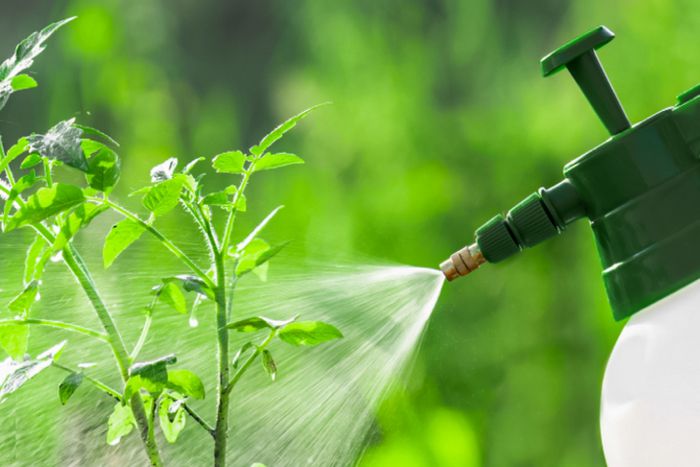How to care for quartz countertops is crucial for maintaining their stunning beauty and longevity. Quartz, a popular choice for kitchen and bathroom countertops, boasts impressive durability and low maintenance requirements. This guide delves into the specifics of cleaning, preventing damage, and addressing common issues, ensuring your quartz countertops remain a showpiece for years to come.
From understanding the different types of quartz surfaces to mastering effective cleaning techniques, this comprehensive guide covers everything you need to know. We’ll explore the best cleaning solutions, highlight potential pitfalls to avoid, and provide step-by-step instructions for maintaining your quartz countertops in pristine condition.
Introduction to Quartz Countertops

Quartz countertops have rapidly become a popular choice for homeowners seeking durable, low-maintenance surfaces with a wide range of aesthetic options. Their impressive combination of strength, easy care, and beauty makes them a compelling alternative to traditional materials like granite and marble. These surfaces are exceptionally resistant to staining and scratching, and their non-porous nature significantly reduces the risk of bacteria buildup.Quartz is a composite material engineered to mimic the beauty of natural stone while offering superior performance.
This blend of natural minerals and polymers creates a highly durable and visually appealing countertop that can withstand daily wear and tear. The wide array of colors, patterns, and veining options allows homeowners to seamlessly integrate their countertops into any design style.
Quartz Surface Types
Quartz countertops are available in a vast array of colors, patterns, and veining styles. The diverse range of options allows homeowners to create a kitchen or bathroom that reflects their unique aesthetic. These variations are achieved through the carefully controlled blending of natural minerals and resins, allowing for precise control over the final product’s appearance. Some popular types feature subtle, natural veining mimicking the look of natural stone, while others offer bold patterns and colors for a more dramatic effect.
Benefits of Quartz Countertops
Quartz countertops offer a compelling blend of practicality and aesthetic appeal, making them a superior choice over traditional materials. The non-porous nature of quartz makes it exceptionally resistant to stains and spills, significantly reducing the need for extensive maintenance. This inherent durability translates into longevity, ensuring the countertops retain their beauty and functionality for years to come. Furthermore, quartz is highly resistant to scratching and chipping, making it an ideal choice for high-traffic areas.
Care Requirements Overview
Maintaining the beauty and integrity of quartz countertops requires a simple, consistent routine. The non-porous nature of quartz means it resists stains and bacteria effectively. This inherent property minimizes the risk of discoloration and the growth of mold and mildew. Cleaning with mild dish soap and warm water is typically sufficient, with occasional use of a gentle cleaner for tougher spills.
Avoid using abrasive cleaners or harsh chemicals that could potentially scratch the surface. Regular maintenance with these simple techniques can help maintain the pristine appearance and long-lasting durability of quartz countertops.
Cleaning Quartz Countertops
Quartz countertops are beautiful and durable, but regular cleaning is crucial to maintaining their pristine appearance and preventing damage. Proper cleaning techniques not only keep your countertops looking their best but also extend their lifespan, protecting them from the daily wear and tear of spills and stains.Effective cleaning methods are key to preserving the beauty and longevity of your quartz countertops.
Quartz countertops are super low-maintenance, but regular cleaning is key to keeping them looking their best. Knowing how often to water your jade plant is equally important for its health, and surprisingly, this knowledge can help you maintain your quartz counters. Proper watering practices, like those detailed in how often to water jade plant , lead to a healthier, more vibrant plant, and indirectly, a cleaner, more pristine countertop environment.
So, keep those countertops sparkling, and your jade plant thriving!
Choosing the right cleaning agents and following the correct procedures can make a significant difference in the overall condition of your surfaces. Knowing how to address common issues like spills and stains effectively will ensure your quartz countertops remain a stylish and practical part of your kitchen or bathroom.
Importance of Regular Cleaning
Regular cleaning helps prevent the buildup of dirt, grime, and food particles that can dull the countertop’s shine and potentially damage the surface over time. By regularly removing these substances, you maintain the quartz’s inherent beauty and avoid the need for more intensive cleaning later on. This proactive approach will keep your countertops looking new for longer.
Safe and Effective Cleaning Methods
Daily upkeep of quartz countertops involves using non-abrasive cleaners. Harsh chemicals and abrasive materials can scratch the surface, diminishing its beauty and durability. Using appropriate cleaners ensures a safe and effective cleaning process.
Comparing Cleaning Solutions
Various cleaning solutions are available, each with its own set of advantages and disadvantages. Understanding these differences allows you to choose the most suitable solution for your needs.
- Dish soap and water: This is a safe and affordable option for everyday cleaning. It’s generally effective at removing most food debris and light spills. However, it might not be strong enough for stubborn stains.
- Commercial quartz countertop cleaner: These cleaners are specifically formulated for quartz surfaces, often containing mild cleansers and protective agents. They are usually effective and safe for daily use.
- White vinegar: A natural cleaning agent, white vinegar is known for its ability to remove mineral deposits and some stains. However, it may not be as effective for grease or oil-based spills.
Cleaning Spills, Stains, and Marks
Dealing with spills and stains promptly is essential to prevent them from setting into the quartz surface. Different cleaning approaches may be required depending on the nature of the spill or stain.
- Water-based spills: Blot up excess liquid immediately with a clean cloth or paper towel. Then, clean the area with a mild dish soap and water solution, followed by a thorough rinse and dry.
- Greasy or oily spills: Use a mild dish soap and water solution, or a commercial cleaner designed for grease and oil. Avoid harsh scrubbing, which can scratch the surface. Allow the cleaner to sit for a few minutes before wiping clean. Repeat as needed.
- Stubborn stains: For stubborn stains, consider using a mixture of white vinegar and water. Allow the mixture to sit for a few minutes before gently scrubbing the stain with a soft-bristled brush. Rinse thoroughly and dry completely.
Step-by-Step Cleaning Procedure
- Preparation: Gather your cleaning supplies, including a soft cloth or sponge, a mild dish soap or commercial quartz cleaner, and a clean cloth or paper towels for drying.
- Pre-Cleaning: Remove loose debris from the countertop with a soft brush or cloth.
- Application: Apply a small amount of cleaning solution to the cloth or sponge.
- Cleaning: Gently wipe the countertop in a circular motion. Avoid harsh scrubbing.
- Rinsing: Rinse the countertop thoroughly with clean water.
- Drying: Dry the countertop completely with a clean cloth or paper towel.
Cleaning Agent Comparison
| Cleaning Agent | Effectiveness | Pros | Cons |
|---|---|---|---|
| Mild Dish Soap and Water | High (for everyday use) | Affordable, readily available, generally safe | May not be effective for heavy stains or grease |
| Commercial Quartz Countertop Cleaner | Medium to High | Formulated for quartz, often contains protective agents | Can be more expensive than dish soap |
| White Vinegar and Water | Medium (for some stains) | Natural cleaning agent, effective for mineral deposits | May not be effective for all types of stains, can have a strong smell |
Preventing Damage to Quartz Countertops
Quartz countertops are beautiful and durable, but like any material, they can be susceptible to damage if not handled properly. Understanding the potential pitfalls and implementing preventative measures will ensure your quartz countertops remain pristine and functional for years to come. Knowing how to protect them from scratches, chips, and etching is key to maintaining their aesthetic appeal and longevity.Protecting your quartz countertops involves more than just regular cleaning; it’s about understanding how they react to different elements and applying appropriate precautions during installation and daily use.
Proper handling, choosing the right tools, and being mindful of potential hazards will safeguard your investment and keep your kitchen looking its best.
Common Causes of Damage
Quartz countertops are remarkably resilient, but certain actions can lead to scratches, chips, and etching. Understanding the causes of these damages allows you to take proactive steps to avoid them. Knowing the culprits behind potential problems is crucial for maintaining your countertops’ flawless appearance.
Quartz countertops are a dream to maintain – just wipe them down with a damp cloth! But sometimes, the grease from cooking can build up, especially in the oven. For a super-easy way to tackle oven grime without harsh chemicals, check out this fantastic guide on how to easily clean an oven without oven cleaner how to easily clean an oven without oven cleaner.
Once you’ve got your oven sparkling, remember to keep those quartz countertops spotless by using mild dish soap and water. A quick wipe-down is all it takes!
Preventing Scratches
Scratches are a common concern, particularly during installation and daily use. Sharp objects, such as knives, can easily leave marks on the surface. Using appropriate cutting boards and utensils is essential to prevent these marks. A simple precaution like using a cutting board while chopping or using non-metallic utensils can significantly reduce the risk of scratching. Using coasters and trivets under hot items will also prevent potential scratches from heat.
Preventing Chips
Chips can occur due to impacts, especially during furniture installation or accidental collisions. When moving or installing furniture, be cautious to avoid direct impacts on the countertop. Using furniture pads or protective barriers can mitigate the risk of chipping. Properly cushioned furniture legs or protective pads will minimize the chance of impact damage during routine tasks.
Preventing Etching
Etching, a dulling or discoloration of the surface, can result from exposure to acidic substances. Acidic foods and drinks can potentially etch the surface if left to sit or if spills occur. Spills should be wiped up immediately to avoid long-term damage. Using appropriate containers for storing acidic foods and liquids can help to prevent these issues.
Proper Handling Techniques
Proper handling is critical during installation and regular use. Avoid dragging heavy items across the countertop, as this can lead to scratches and chips. Using appropriate supports and pads when installing furniture is crucial to prevent damage. Using a soft cloth and gentle pressure during cleaning will avoid scratching. Avoid using abrasive cleaners or scouring pads, which can cause damage.
Using Appropriate Cutting Boards and Utensils
Cutting boards and utensils are essential tools for food preparation, but they can also cause damage if not handled carefully. Always use a cutting board when cutting or chopping to protect the countertop surface. Use non-metallic utensils to avoid scratching. Cutting directly on the countertop should be avoided to prevent scratching and chipping.
Effects of Heat and Moisture
Heat and moisture can affect quartz countertops in various ways. Avoid placing extremely hot items directly on the surface to prevent discoloration or damage. Use trivets or heat-resistant pads to protect the countertop from high temperatures. Water spills or prolonged exposure to moisture should be promptly wiped away to avoid potential damage or staining. Moisture buildup, if left unattended, can cause discoloration or warping over time.
Preventing Damage: A Summary
| Potential Damage | Cause | Prevention |
|---|---|---|
| Scratches | Sharp objects, improper handling | Use cutting boards, avoid dragging heavy items, use non-metallic utensils |
| Chips | Impact from heavy objects, improper furniture installation | Cushion furniture legs, use protective barriers, avoid dropping heavy objects |
| Etching | Exposure to acidic substances, spills | Avoid acidic spills, wipe up spills immediately, use appropriate containers for acidic foods |
Addressing Specific Issues: How To Care For Quartz Countertops
Quartz countertops, while durable, can still face challenges. Understanding how to address specific issues like stubborn stains, hard water marks, and minor damage is key to maintaining their beauty and longevity. This section dives into practical solutions for various problems you might encounter.
Keeping your quartz countertops sparkling is a breeze with regular cleaning. Just remember to avoid harsh chemicals and abrasive cleaners. For truly organized spaces, exploring creative storage solutions like those found in storage ideas for your entire home can help keep your kitchen clutter-free. This way, you can maintain a clean countertop and a beautiful, well-organized home.
Ultimately, a little care goes a long way in keeping your quartz counters looking their best!
Stubborn Stains and Discoloration
Quartz’s non-porous surface makes it resistant to many stains, but persistent discoloration can occur. Often, a gentle cleaning approach using mild dish soap and warm water is sufficient. For tougher stains, consider using a paste of baking soda and water, applying it gently with a soft cloth. If the stain persists, a specialized cleaner for quartz countertops might be necessary.
Always test any cleaning agent in an inconspicuous area first to prevent unwanted discoloration.
Hard Water Stains and Mineral Deposits
Hard water can leave unsightly mineral deposits on quartz countertops. These deposits are often mineral buildup from hard water, leading to a cloudy or chalky appearance. A mixture of white vinegar and water can effectively remove these deposits. Apply the solution, let it sit for a few minutes, and then wipe away with a clean cloth. For more stubborn cases, consider a commercial hard water stain remover specifically formulated for quartz.
Handling Specific Spills
Dealing with spills promptly is crucial for preventing permanent stains. For wine or coffee spills, blot up the excess liquid immediately with a clean cloth. Then, apply a mixture of warm water and dish soap, gently scrubbing the area. For oil spills, use a clean cloth to absorb the oil, followed by a gentle scrub with a mild detergent.
Avoid harsh chemicals or abrasive cleaners, which could damage the countertop’s surface.
Removing Minor Scratches and Chips
Minor scratches and chips on quartz countertops can be repaired. For shallow scratches, try using a fine-grit rubbing compound and a polishing cloth. For deeper scratches, consider a quartz repair kit specifically designed for this purpose. Always follow the manufacturer’s instructions carefully. For chips, a resin-based repair kit can often fill and match the color of the chip.
Table of Stain Removal Solutions
| Stain Type | Cleaning Method | Precautions |
|---|---|---|
| Food Spills (e.g., sauces, fruit juices) | Blot up excess with a clean cloth, then apply a mixture of warm water and dish soap, gently scrubbing the area. | Avoid harsh abrasives. Act quickly to prevent the stain from setting. |
| Ink | Apply rubbing alcohol to the affected area, allowing it to sit for a few minutes. Then blot with a clean cloth. | Test the rubbing alcohol on a small, inconspicuous area first. |
| Sticky Substances (e.g., gum, adhesive residue) | Use a plastic scraper or a putty knife to remove the residue. Then, apply a gentle cleaner or a specialized adhesive remover. | Work carefully to avoid scratching the surface. |
| Crayon Marks | Use a soft cloth dampened with mineral spirits to gently remove the marks. | Apply only a small amount of mineral spirits to avoid spreading the mark. |
Maintenance and Protection
Quartz countertops, while incredibly durable, require regular care to maintain their beauty and longevity. Proper maintenance extends their lifespan, prevents damage, and ensures they continue to look stunning in your kitchen or bathroom for years to come. This involves a proactive approach to cleaning and protection, rather than just reacting to spills and stains.Regular maintenance is crucial for preserving the pristine look and functionality of your quartz countertops.
This proactive approach not only keeps them looking their best but also prevents potential damage, extending their lifespan significantly. Investing in proper sealing and protective coatings is a key element in this strategy.
Importance of Regular Maintenance
Regular cleaning and maintenance is essential to preserving the pristine appearance and functionality of quartz countertops. Neglecting these tasks can lead to the accumulation of stains, discoloration, and potentially damage to the surface. The benefits extend beyond aesthetics; consistent care strengthens the bond between the sealant and the quartz, increasing the countertop’s overall resistance to scratches and staining.
Benefits of Sealant and Protective Coatings
Quartz countertops are naturally non-porous, but sealing enhances their resistance to staining and spills. A protective coating forms a barrier against everyday wear and tear, keeping the surface pristine and easy to clean. This prevents the penetration of liquids, oils, and other substances that can cause discoloration and damage. A properly sealed countertop also makes cleanup significantly easier.
Correct Application Procedures for Sealants
Proper application is critical for sealant effectiveness. Begin by thoroughly cleaning the countertop surface to remove any dirt, debris, or previous sealant residue. Following the manufacturer’s instructions for the specific sealant chosen is essential. Apply the sealant evenly using a clean applicator, ensuring complete coverage. Allow sufficient drying time as indicated by the product instructions before use.
This process is crucial for a lasting seal and protection.
Comparison of Sealant Options
Various sealant options are available, each with unique characteristics. One-component sealants are often easier to apply, while two-component sealants may offer a longer-lasting protective barrier. The durability and effectiveness of a sealant are also influenced by its chemical composition. Consider the specific needs of your countertop and the environment in which it’s used when choosing a sealant.
For instance, a sealant designed for high-traffic areas will likely be more durable than one for a less-used space. Comparing reviews and user experiences can help in making an informed decision.
Routine Quartz Countertop Maintenance Checklist, How to care for quartz countertops
- Weekly Cleaning: Wipe down countertops with a damp cloth and mild dish soap, paying special attention to high-traffic areas. This routine cleaning prevents the buildup of dirt and grime, keeping the countertops clean and preventing stains from setting in.
- Monthly Deep Cleaning: Use a more thorough cleaning method to remove tougher stains or build-up. A specialized cleaner for quartz countertops may be necessary for this deeper clean.
- Quarterly Resealing: Resealing your quartz countertops every three months can significantly increase their longevity and maintain their resistance to stains and spills. This routine helps to maintain the protective barrier, preventing damage and extending the lifespan of the countertops.
- Immediate Action for Spills: Clean up spills immediately to prevent staining. This simple step can save you from significant damage.
- Regular Inspection: Regularly inspect the countertops for any signs of damage or wear. Addressing minor issues early can prevent larger problems from developing. This includes noticing any discoloration or damage from use, which can be repaired early.
Troubleshooting

Quartz countertops, while durable, can sometimes exhibit issues. Understanding common problems and their solutions empowers you to maintain the beauty and functionality of your quartz surfaces for years to come. This section details troubleshooting steps, from identifying minor imperfections to navigating more serious concerns.Quartz countertops are known for their resilience, but they aren’t impervious to all problems. Knowing how to diagnose and address these issues is crucial for maintaining their aesthetic appeal and longevity.
Early detection and appropriate action can prevent further damage and costly repairs.
Identifying Signs of Damage or Degradation
Quartz countertops are exceptionally durable, but even they can show signs of wear and tear over time. Careful observation is key to maintaining the quality of your surfaces. Common signs of damage include discoloration, staining, etching, or physical damage like cracks or chips.
- Discoloration: A change in the countertop’s original color, often appearing as streaks or patches, could indicate staining or a reaction to certain substances.
- Staining: Certain substances, like acidic foods or drinks, can leave permanent stains on quartz. Identifying the source of the stain is essential to its removal.
- Etching: Etching, characterized by a dulling or pitting of the surface, is frequently caused by harsh cleaning agents or prolonged contact with abrasive materials. Mild etching might be repairable; severe etching might necessitate replacement.
- Physical Damage: Cracks, chips, or significant scratches can compromise the countertop’s structural integrity. These issues may require professional intervention for repair or replacement.
Addressing Specific Issues
Different types of issues require specific approaches. Understanding the nature of the problem is crucial for determining the best course of action.
- Minor Stains: For minor stains, try using a mild cleaning solution, such as a mixture of warm water and dish soap. For stubborn stains, a specialized cleaner for quartz countertops might be necessary.
- Etching: Minor etching might be tackled with specialized polishing compounds or abrasive cleaners, but severe etching often demands professional intervention to restore the surface’s original sheen.
- Cracks or Chips: Cracks or chips in the quartz require immediate attention to prevent further damage. A professional countertop repair technician can assess the damage and recommend the best repair method, which could range from patching to complete replacement.
Contacting a Professional
If you suspect damage beyond your capabilities to repair, contacting a professional is the best course of action. A qualified professional can assess the situation accurately and recommend the appropriate solution, whether it’s repair, replacement, or a combination of both.
- Initial Assessment: Describe the problem thoroughly, including the type of damage, its location, and any relevant details, such as the substance that caused the damage.
- Gather Information: Document the problem with photos or videos. These visuals can help the professional understand the extent of the damage.
- Obtain Quotes: Request quotes from multiple professionals for repairs or replacements. Compare quotes based on the quality of service, experience, and the cost.
Troubleshooting Flowchart
The following flowchart Artikels a systematic approach to troubleshooting quartz countertop issues.
| Issue | Action |
|---|---|
| Minor stain | Try a mild cleaning solution; if unsuccessful, consult a professional cleaner. |
| Etching | Assess severity; minor etching may be addressed with specialized products; severe etching needs professional intervention. |
| Cracks/Chips | Contact a professional countertop repair technician for assessment and repair or replacement. |
Final Review
In conclusion, properly caring for your quartz countertops requires a combination of proactive measures and quick responses to potential problems. By following the guidelines in this guide, you can maintain the exquisite appearance and durability of your quartz countertops, ensuring they remain a beautiful and functional part of your home for years to come. Remember regular maintenance and prompt action are key to preserving the investment you’ve made in your quartz surfaces.






